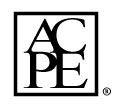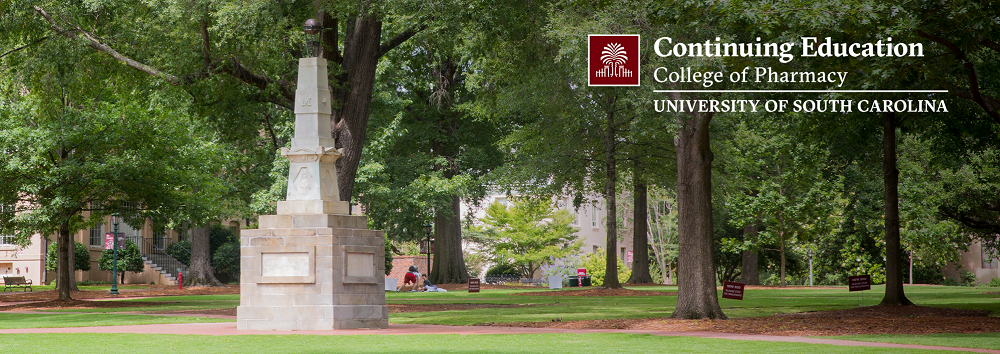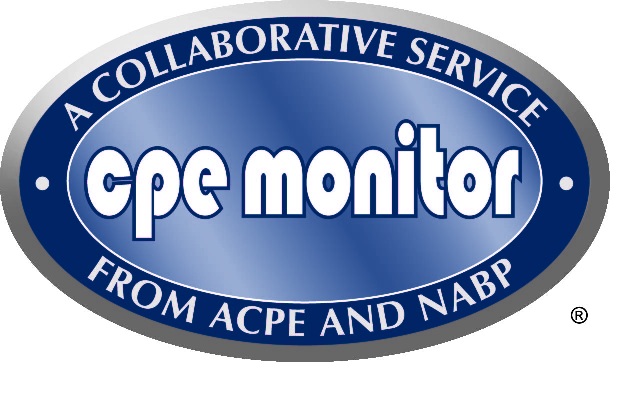- Describe the scope of the opioid abuse problem in the US
- Identify red flag indicators that can help detect illegitimate opioid prescriptions
- Recall the attributes of a valid patient-physician relationship
- Define the legal concept of “corresponding responsibility” and how it relates to dispensing a controlled substance prescription
- Identify five management strategies to reduce the risk of liability for dispensing controlled substance
- Discuss a case involving controlled substances and a patient overdose
- Describe best practices for pharmacy-based immunization delivery
- Describe key components of the updated SC Pharmacy Practice Act regarding immunizations
- Review the 2017 Advisory Committee on Immunization Practices (ACIP) recommendations regarding adult and pediatric immunizations and discuss changes in the schedules
- Discuss available influenza vaccine products for the 2017-2018 season
- Evaluate specific patients’ immunization histories to determine appropriate vaccine recommendations
- Describe best practices for pharmacy-based immunization delivery
- Identify opportunities to improve vaccination rates
- Describe the role of the pharmacy technician in improving the efficiency of immunization delivery
- Discuss the advantages and disadvantages of newly approved treatments for heart failure.
- Given a patient scenario, develop an evidence-based treatment regimen for heart failure based on updated
- List general approaches to preventing drug-induced exacerbation of heart failure.
- Describe potential options and strategies available to improve medication adherence and optimize transitions of care
- Discuss the advantages and disadvantages of newly approved treatments for heart failure.
- Review important safety considerations with the new agents.
- Describe potential options and strategies available to improve medication adherence and optimize transitions of care.
- Recognize symptoms and conditions that might be treated with nonprescription medications.
- Recall active ingredients, doses, directions, adverse events, precautions and contraindications of available OTC products.
- Differentiate situations in which non-pharmacologic treatments, a nonprescription recommendation, and/or a physician referral would be appropriate.
- Utilize the Pharmacists’ Patient Care Process to create a comprehensive self-care treatment recommendation.
- Justify self-care treatment recommendations using patient-specific information, drug information facts, and evidence-based medicine.
- Recognize symptoms and conditions that might be treated with nonprescription medications.
- Recall active ingredients, doses, and directions of available OTC products.
- Identify situations in which non-pharmacologic treatments would be appropriate.
- Identify components of the Pharmacists’ Patient Care Process where a technician can assist a pharmacist in designing and implementing a self-care treatment recommendation
- Discuss the evidence behind certain self-care recommendations.
- Early registration required to receive discounted rate of $110 for pharmacists and $79 for technicians (includes continental breakfast and box lunch)
- We encourage you to register on line at http://SCCP.learningexpressce.com
- Registrations will increase by $10 after October 27, 2017 to $120 for pharmacists and $89 for technicians.
- You may call or email for more information: (803) 777-9979 or email ce@cop.sc.edu
 The South Carolina College of Pharmacy is accredited by the Accreditation Council for Pharmacy Education as a provider of continuing pharmacy education. This program has been accredited for 6.0 live contact hours (0.6 CEUs) for pharmacists and pharmacy technicians, including 1 hour of law. Participants must sign in and attend all sessions for maximum credit. Participants must complete an on-line evaluation within 30 days to facilitate transmission to the CPE Monitor. Failure to provide correct and/or complete information may result in your activity not being reported to the CPE Monitor. ACPE now requires that all credit be claimed and reported within 60 days after the live event. This is a knowledge based learning activity.
The South Carolina College of Pharmacy is accredited by the Accreditation Council for Pharmacy Education as a provider of continuing pharmacy education. This program has been accredited for 6.0 live contact hours (0.6 CEUs) for pharmacists and pharmacy technicians, including 1 hour of law. Participants must sign in and attend all sessions for maximum credit. Participants must complete an on-line evaluation within 30 days to facilitate transmission to the CPE Monitor. Failure to provide correct and/or complete information may result in your activity not being reported to the CPE Monitor. ACPE now requires that all credit be claimed and reported within 60 days after the live event. This is a knowledge based learning activity.Date: Nov 4, 2017 08:15 AM - 03:30 PM
Fee
CE Hours
CE Units
Registration closes on Oct 31, 2017 09:00 AM
Activity Type
- Knowledge
Target Audience(s)
- Pharmacy Technicians
Accreditation(s)

|
The University of South Carolina College of Pharmacy is accredited by the Accreditation Council for Pharmacy Education as a provider of continuing pharmacy education.
|
Requirements for CE Credit
Registration Closed
- Describe the scope of the opioid abuse problem in the US
- Identify red flag indicators that can help detect illegitimate opioid prescriptions
- Recall the attributes of a valid patient-physician relationship
- Define the legal concept of "corresponding responsibility" and how it relates to dispensing a controlled substance prescription
- Identify five management strategies to reduce the risk of liability for dispensing controlled substance prescriptions
- Discuss a case involving controlled substances and a patient overdose
Speaker(s)/Author(s)
|
Gene Reeder, PhD, R.Ph
|
Activity Number
0062-0000-17-168-L03-TCE Hours
Registration Closed
- Describe best practices for pharmacy-based immunization delivery
- Identify opportunities to improve vaccination rates
- Describe the role of the pharmacy technician in improving the efficiency of immunization delivery
Speaker(s)/Author(s)
|
Betsy Blake, PharmD, BCPS, FNAP
|
Activity Number
0062-0000-17-167-L06-TCE Hours
Registration Closed
1. Discuss the advantages and disadvantages of newly approved treatments for heart failure.
2. Review important safety considerations with the new agents.
3. Describe potential options and strategies available to improve medication adherence and optimize transitions
of care.
Speaker(s)/Author(s)
|
Brie Dunn, PharmD
|
Activity Number
0062-0000-17-169-L01-TCE Hours
Registration Closed
- Recognize symptoms and conditions that might be treated with nonprescription medications.
- Recall active ingredients, doses, and directions of available OTC products.
- Identify situations in which non-pharmacologic treatments would be appropriate.
- Identify components of the Pharmacists????Patient Care Process where a technician can assist a pharmacist in designing and implementing a self-care treatment recommendation
- Discuss the evidence behind certain self-care recommendations.
Speaker(s)/Author(s)
|
Patricia Fabel, PharmD, BCPS
|

